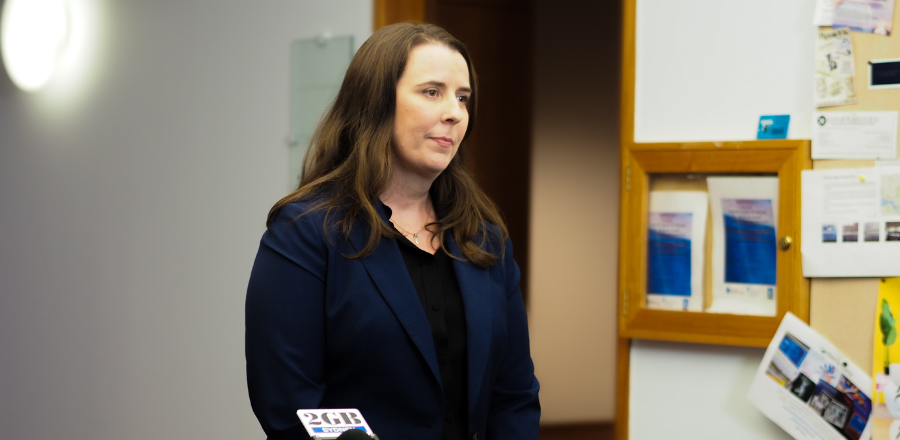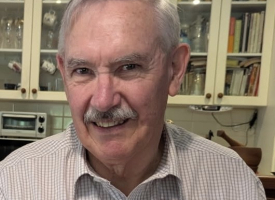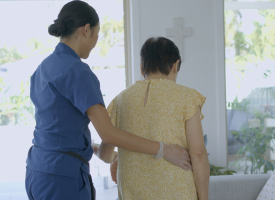2025 Ambulance Ramping Report Card: AMA President Dr Danielle McMullen on ABC News Breakfast
Transcript of AMA President Dr Danielle McMullen on ABC News Breakfast speaking about the 2025 Ambulance Ramping Report Card.

QUESTION: Well, both major parties have pledged billions to sort out the nation's health system if elected.
But the Australian Medical Association says the biggest bottleneck remains ambulance ramping, with far too many people waiting far too long to get seen by medical professionals. And there are also reports of people dying in the process.
AMA President Dr Danielle McMullen joins us now from Brisbane for more on this story. Danielle, good morning.
DANIELLE McMULLEN: Good morning, thanks for having me.
QUESTION: How bad are things around the nation?
DANIELLE McMULLEN: Unfortunately, the news isn't great. Our latest ambulance ramping report card has shown that in the past year, there has been a small improvement in the number of patients seen getting out of the ambulance and into the emergency department quicker, but we're still far behind where we were five years ago, which means that too many patients are waiting too long in those ambulances to be able to get into the hospital, which is really stressful for our ambulance and our emergency department staff. But most importantly, it means patients are waiting too long when they're critically unwell and really need to be able to get into the emergency department and begin that treatment for their life-threatening conditions.
QUESTION: Yes, we've heard about people dying while ramped. We've also heard a lot of anecdotal stories about people having worse outcomes due to being ramped for long periods of time. Is there a worst and best performing jurisdiction, and is there even enough data to be able to compare the best and worst performing states and territories?
DANIELLE McMULLEN: It's a great question, and unfortunately, we can't answer it because across the country, both the definitions of what is ambulance ramping and the type of data collected and shared, and the speed with which that is shared is really variable. It takes us a huge amount of effort every year to try and collate each state's data, but there's no way to compare that. So, one thing we do think needs to happen is to have some uniformity of definitions and data collection, so that Australians can get a clear picture about the situation across the country and what needs to be done.
QUESTION: We've had multiple state leaders in particular declare that they're going to fix this issue. Peter Malinauskas in South Australia certainly comes to mind as someone who campaigned on this and then got into government and has found it very, very difficult. Why is it so difficult to fix this issue?
DANIELLE McMULLEN: I think because it's emblematic of the challenges across our healthcare system. Ambulance ramping isn't an ambulance problem, and in fact, it's not even just an emergency department problem. These are our public hospitals in logjam. And the reason people can't get into ED is because the emergency department can't move their patients onto the ward, because we can't get people discharged into aged care or disability care or back home to a safe environment.
So really, we need to think about the whole health system. We need investments in general practice and aged care. And importantly, we need proper resourcing of our public hospitals so that they've got more space, more resourcing and a certainty of funding for more than a year so that our staff can get on with delivering healthcare and they can flow more smoothly, and we don't have patients scared to call an ambulance because they don't want to clog up the system, or waiting too long when they really critically need care.
QUESTION: We're in a federal election at the moment, of course. We've probably seen most of the health announcements we're going to, particularly around bulk billing and the like, hospitals, of course, responsibility of the states. After the election, is this something you want national cabinet to sit down, get all the leaders across the country together and go, right, how are we going to map a path forward?
DANIELLE McMULLEN: Whoever is successful this election, we urgently need them to get to the table and sort out the health funding agreement for hospitals. We've seen a one-year rollover, and we've previously seen the Labor government commit to further funds and increasing the Commonwealth's support for public hospitals. But we need the states and territories and the Commonwealth to get on board. And we need voters to take an interest in this, in clearing the hospital logjam and communicating with their candidates about the importance of public hospital funding.
* * END * *



